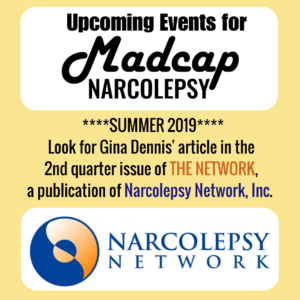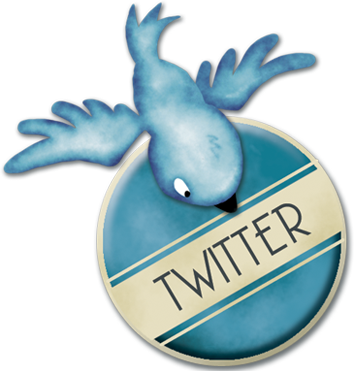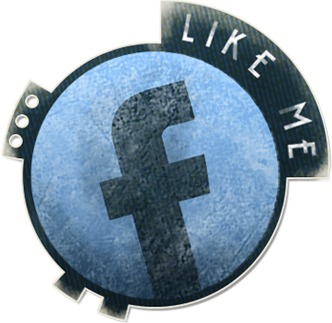People, people, people. This 3 part series has been HARD to write. Here I am, attempting to share with you the reasons, as scientifically as a layman can get, behind the diet my family and I follow. It is our experiences, and the fact that we’ve been highly successful at this, that gives me enough confidence to share the science-y things I’ve found with you.
You see, when I found out about using diet to mitigate narcolepsy symptoms, it took me months and months of reading, and re-reading, and !OMG! RE-READING till just enough of the information filtered through my narcolepsy fogged brain to make sense. My hope is that these posts will condense the science-y parts down to a level that can penetrate through even the most extreme of narcolepsy fogs.
This 3 part series will be a high level overview of how I’ve interpreted the science and applied it to the diet my family and I follow, thus the “30,000 Feet” part of the title. Later on, after you’ve been on the diet for a bit and the fog has lifted enough for you to think straight, we’ll go into much greater detail and dig deeper into the science-y stuff. My hope is that in this series I’ll have provided you with enough solid and concise information that you can share it with your doctor and family/friends in order to gain their support in your endeavor.
So let’s get to it shall we?
PART 1 – OREXIN (a.k.a. Hypocretin)
In everyone, orexin is a biochemical that regulates alertness and promotes wakefulness. (1) Whether we have narcolepsy with cataplexy or narcolepsy without cataplexy, we ALL have issues with alertness and wakefulness (i.e. excessive daytime sleepiness and sleep attacks). (2, 3, 4)
But here’s an interesting thing, orexin is also involved in your digestive processes and glucose control. (5, 6, 7) And this, my friends, is where it gets interesting and where I feel diet comes into play.
At its most basic level, orexin is all about food and eating. Here’s how a day in the life of the orexin neuron is supposed to play out. For today’s purposes this will be enough information about orexin. But keep in mind that there are other important things about it that we’ll dive into at a much later date.
- Light dawns with the sunrise and hits the retina sending impulses to the brain that get orexin up and running. (8)
- Since you’ve not eaten through the night your blood glucose levels are low. This turns the orexin production up (in other words, it flips the on switch) in order to help you go find and prepare something to eat. This translates in a few different ways and has several affects associated with alertness/wakefulness:
- High orexin levels means you are awake since consciousness is pretty important when finding and preparing food to eat. (9)
- Orexin affects mood by stimulating the dopamine and serotonin reward systems. So the idea of food makes you happy and you feel motivated to go eat. (10, 11)
- Orexin affects energy by stimulating the Locus Coeruleus (LC). More orexin fibers go to the LC than any other place in the body. The LC is a brain region that regulates overall activity level and sensitivity by releasing adrenaline. More orexin equals more adrenaline equals more energy. Meaning you have the energy to go find food, prep it, and eat it. (12)
- Orexin affects memory by stimulating the hippocampus which is involved in geospatial and emotional memory. This helps you remember where food is, how to prepare it, etc. (13)
- Also important in finding and preparing food is the fact that orexin affects cognitive function by stimulating the prefrontal cortex which is responsible for attention and calculation. This area enables you to plan where to go and how to get there, what to do in case of adverse events. (14)
- Yummmmm. Orexin helped you go get something to eat, sooo….you eat. And then the flip side of the process begins. As you digest the food your glucose levels rise and the orexin production reduces output and turns off.
- Flash forward a few hours and your blood glucose levels drop, you get hungry, and the whole thing starts up again.
- When the sun begins to set and it starts to get dark your retina senses a lessening of light and starts sending impulses to the brain that reduce the levels of orexin. You get sleepy and go to bed.
- The sun rises and the whole thing starts again.
Sigh…that’s what’s supposed to happen, right? But in narcoleptics things get all out of whack. And if yours is out of whack don’t you want to do what you can to get it to work better, more efficiently? Would you keep doing things that throw it further out of whack than it already is? No, I don’t think you would.
Ok, so what do we do to un-whack it? Hidden in that long description of what orexin does were three very important bits of info that we as narcoleptics need to know:
- What we eat causes our blood glucose levels to go up and down.
- High glucose levels turn orexin OFF.
- Lowering blood glucose levels turn orexin ON.
Please read that section just one more time. Basically, FOOD turns orexin on and off. ON and OFF folks. (15) I don’t know about you, but this was mind blowing for me.
So now that you know that food affects orexin are you more curious about how a diet can help with making the most of the orexin you have? Good. In Part 2 I’ll dive into some of the science-y things that I think apply to why a carbohydrate management diet (and variations thereof) can help you control glucose and thereby help control orexin’s on/off switch. And then in Part 3 I’ll dive into the gut (not literally, ick!) and discuss why its health is so important to us and is an integral and important part of the diet my family and I follow.
Whew! That was a lot of super technical information and honestly, I tried to keep it as short and sweet as possible. Let this process a bit and then join me for the next installment Carbohydrate Control.
*For your convenience, a printable of the entire series with the references listed is available here.
Your Madcap Miss (a.k.a. Gina Dennis)
Let me be totally up front here…I AM NOT A DOCTOR, nor am I a nutritionist, I only have a tiny amount of formal training in such things as a Health Coach. But I am a person with narcolepsy who uses dietary and lifestyle changes to mitigate my narcolepsy symptoms. I’ve been experimenting with these changes since July 2011 and have successfully maintained a high level of narcolepsy symptom management since that date. And so has my family with narcolepsy. This website contains our personal stories, failures, and experiments. In this website I will share with you the information that I have found most credible and some practical ideas for mitigating narcolepsy symptoms. I beg you to check with your doctor before initiating any of the dietary changes I speak of, especially if you are taking any medications.






I can not thank you enough for taking the time to share this. I have had N for 12 years and still do not have any sort of grip on it. I read constantly and look for new information. This so far & by far is one of the most helpful articles I’ve come accross!! Easy to understand, funny& incredibly sincere!!! I look forward to reading part 2&3
People like u make the world a better place & give me hope!!!
Thank u so much
You’re welcome! So glad you liked Part 1 in this series. Part 2 is already out…you can find it on the Science-y Stuff page and is called Part 2 – Carb Control. Let me know if you have any questions.
Part 3 is in it’s final editing stages and should be out soon. Can’t wait to share it with everyone!
I read part 2 which was wonderful!! I can not wait till part 3. Once I completely understand the diet I am eager to start!! The Adderall has already caused multiple white matter lesions on my brain & the Xyrem has given me so many side effects. I have bruises covering both my legs. 😟 My depression gets worse every time I am hopeful and it fails. This time I have a very good feeling it’s going to help!!😃 I am a positive, creative & energetic spirit. I so need my body to line up with my spirit so I can get back to my life again. Thank you again for taking time to help others. People like you make the world a better place!!
Part 3 is out!!! Finally 🙂
Wow!!! I am 54 yrs old, and have had narcolepsy since I was about 13yrs, and wasn’t diagnosed until about 26/27 yrs!! In the interim, I created a workaholic beast inside me!! Some yrs back, my meds failed me, even tho I still took them! Last yr, I stopped taking them, and wonder of wonders, I HAD NO WITHDRAWALS!! After all what was there to w/draw from? Drugs that no longer had any affect on me? Was no surprise to me!! I have been failingly searching for a natural treatment for the eds, which has pretty much control of my life! I go to work 40 hrs a wk, @ a plywood mill which keeps me fairly awake. However, outside of work, I sleep, don’t have time to work my two clydesdale horses, play w/the senior dog, or w/my five cats!!! My vegetable garden is pretty much no longer!! Sorry for my soapbox!! I have been fighting this losing battle for probably 10 yrs, and each yr it gets harder to fight it. I am single and live alone up in the mtns of North Idaho, and my beautiful piece of God’s country, is something I am rarely awake enough to thank Him for anymore, unfortunately! I am hoping I am on the right track finding this website, I would love to be “a narcoleptic out of narcolepsy and into life again!!” God bless you for sharing this so valuable and possibly life changing information. I feel like maybe there is possibly hope again for an end to this nightmare of sleepiness!!
Thank you so much for sharing your story Nancy. So sad that many of us share the same story just with varying ages and locations. It sounds like you are a fighter at heart and I can’t wait to get to know you more.
I’M SO HAPPY you’ve decided to take a journey with me “out of narcolepsy and into life”… that tag line is SOOOOO the way it felt when I first surfaced from my sleepy life and began a journey of wakefulness and discovery via diet and lifestyle changes.
Just read part one. Good read! I tried gluten free a few years ago without success. Last July I was down for four days with a stomach bug. Ate nothing solid the whole time. For three or four days after I felt better than I had in long, long time. In spite of trying, I haven’t been able recreate the event. Regardless, what little of your work that I’ve read I find it encouraging and plan to follow. My batteries are running low right now. I plan to read the rest in the near future. Admiring your progress, Scott
Isn’t it strange that illness of another sort can sometimes lead you to a key to health in another illness? I was having heart issues when I stumbled across the change in lifestyle that I now promote for narcolepsy.
So happy to have you along for the ride. Maybe together we can find a way to recharge your batteries. Stay in touch!
Great info! I’m type 2 N and have tried to stick with a vegetarian keto diet for the last year. This diet has been so helpful and although I still feel tired, I don’t feel like I’m crashing all the time. My moods have improved drastically, also. Intuitively, a keto diet makes sense for N as it’s an autoimmune disease, and ketogenic diets can reduce inflammation in the body.
Here’s a site I visited recently that discuses the role of hypocretin and how to encourage hypocretin production:
http://selfhacked.com/2014/02/12/how-to-increase-orexin-and-decrease-fatigue-naturally/
That site is pretty awesome and one I’ve referred to many times. Loads of great information not only in that post but also the website in general. Thanks for sharing!
That’s wonderful to hear Amy! I haven’t read much on vegetarian keto and would love to pick your brain about it. Please consider emailing me at madcapnarcolepsy@gmail.com.
Wow, this makes so much sense. I’m GF already, but I like my sweets. It’s no surprise I feel sluggish when I have them, but I chalked that up to desserts not being healthy (aside from my bad sweet tooth, I actually do eat a fairly healthy natural foods diet). I didn’t know the sugar/carb connection was specific to N. Glad I do now! Thank you for sharing this info to help us out!
Thanks Jamie! Glad to help you make the connection. I have a bad sweet tooth as well and because of this I have some tips and tricks to help overcome them. Stay tuned for when I roll out the diet with the meal plans and recipes. There will be some yummy recipes to help you not have the nap crashes after an indulgence.
Well done Madcap Missy! Glad to see that you are still hard at it. Also glad that you are finally publishing some of the sciencentific experiments that you have been performing on yourself and your family for the last few years! Best of luck. Fight the good fight! Remember: Gluten sucks! Carbs suck!
Hey stranger! Thanks for rooting for me!
Well that totally explains why I tend to not eat all day and then pig out at night before I go to bed I think I’ve been trying to self-regulate my sleep and narcolepsy with food.
You are leaps and bounds ahead of the game already then! You’ve done two of the toughest things all on your own. 1) You’ve connected wakefulness (or the lack of) with food. And 2) you’re listening to your body. Kudos to you!
I hope I’ll be able to show you how to eat through the day, since your body needs the fuel, and still stay awake. And then help you keep from pigging out at night. 🙂
I agree totally.
My son has Narcolepsy and I have always seen him struggling that he feels the need to eat to get the energy and immediately after he sleeps. Especially sugar is really not good for him.
I think that the professionals who do the research in Narcolepsy should be communicating much more with PWN because they are the source to understand narco better. This is in my point of view a big lack..
My son gets angry if he cannot eat and in the same time it makes him deadly tired. Neurologists cannot understand how PWN feel and suffer as long as they don’t listen.
I know that a serious diet can make the quality of the life of a PWN much better.
Thank you so much anyway for all the research you and your family do.
I will print this info and hand it over personally to one of the most known specialists in Narco in France, Professeur Deauvilliers.
Linda Kwant
Thank you for your comment Linda. I’m sorry to hear that your son is struggling. I hope that this website is able to provide you with some simple tools for helping him break the sugar habit and eat better. After this 3 part series about the science is published I’ll begin walking folks through the steps my family and I took to do this diet.
Keep in touch, and thank you for printing our the post for Prof. Deuvilliers.
I absolutely agree with this assessment! Though I’ve not looked into the “why” as deeply as you have, I believe few narcoleptics will disagree that food=sleep. When I avoid bread and sugar and eat small portions I have a much more productive day, and feel as close to “normal” as I can.Kudos!
Thank you for the kudos, and right back at ya! Making the food=sleep connection is a big step toward better managing your symptoms.
When I first started the diet I did it on a wing and a prayer because I was so deep in the narcolepsy brain fog. I could barely process how to make a diet change let alone process the science behind why. I hope my assessment was easy enough to understand and that other folks deep in the brain fog are able to process it.
It’s good to hear that you’ve made the connection between food and sleep. Stay tuned for more information about how diet can help. “Part 2 – Carb Control” and “Part 3 – Gluten” will be shared in the coming weeks so come back and check it out.
Really need help!
Hi Nancy! I’m happy to help in any way I can. You can pose your questions and needs here in this comment thread or you can email me at madcapnarcolepsy@gmail.com for more private assistance. I’m looking forward to hearing from you.